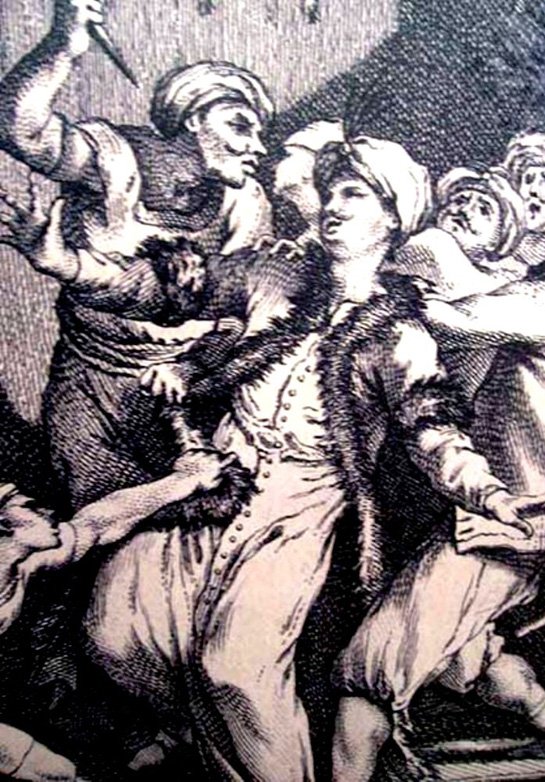The life and murder of Prince Mustafa, a tragic chapter in Ottoman history, continues to captivate historians and enthusiasts alike. Born to Sultan Suleiman the Magnificent and Mahidevran Hatun, Prince Mustafa was a promising heir to the throne, known for his intelligence, bravery, and popularity among the janissaries. However, his life took a dramatic turn when court intrigues and political machinations led to his untimely execution in 1553. This article delves into the intricate details of Prince Mustafa’s life, his rise within the Ottoman hierarchy, and the events that culminated in his tragic demise, shedding light on the complex dynamics of Ottoman succession and the ruthless nature of palace politics.
Prince Mustafa is one of the important and tragic figures of the Ottoman Empire. Mustafa, who had a life full of throne fights and intrigues, won the love of the people with his courage and honesty. His death is an event that left deep marks in Ottoman history.
Prince Mustafa
Prince Mustafa is one of the tragic figures of the Ottoman Empire. Born in Manisa in 1515, Mustafa is the son of Sultan Suleiman and Mahidevran Sultan. Prince Mustafa’s life is a story full of throne fights and intrigues, and he eventually ended by drowning.
Prince Mustafa’s Education and Early Years
Prince Mustafa served in the Saruhan (Manisa) Sanjak Principality between 1533 and 1541. Saruhan was an important sanjak where candidates for the sultan were trained. In 1541, he was appointed as the Amasya Sanjak Principality and the Saruhan Sanjak Principality was given to his brother, Prince Mehmet. Upon the sudden death of Prince Mehmet in 1543, the Saruhan Sanjak Principality was given to Prince Selim and Prince Mustafa was appointed as the Konya Sanjak Principality.
Prince Mustafa’s Struggle for the Throne
Prince Mustafa, as the eldest living son of Sultan Suleiman, was one of the strongest candidates for the throne. However, the birth of Hürrem Sultan’s sons Mehmet, Selim, Bayezid and Cihangir undermined Mustafa’s candidacy for the throne. Hürrem Sultan put great pressure on Sultan Suleiman to place one of her own sons on the throne. In the Ottoman Empire, it was unpredictable which prince would ascend to the throne, and this uncertainty created constant competition within the dynasty.
The Personality of Prince Mustafa
Prince Mustafa was a very well-educated, brave and successful soldier. He was also a good poet and resembled his grandfather Yavuz Sultan Selim in appearance and mannerisms. He was also very popular with the people and the military. He lived with his mother Mahidevran Sultan in Amasya, 26 days away from Istanbul on the Iranian border, and her mother took every precaution to ensure Mustafa’s survival. Prince Mustafa was noted for his honest, generous and brave personality. The Janissaries and the people wanted him to ascend to the throne. However, Hurrem Sultan and Rustem Pasha harbored great hatred for Prince Mustafa.
Death of Prince Mustafa
Prince Mustafa was strangled by his father Sultan Suleyman in Konya Ereğlisi on October 6, 1553. According to historical sources, when he arrived at the tent, he was greeted by 7 executioners. Prince Mustafa was a strong and brave man; the executioners could not defeat him. However, he was eventually strangled to death by Zal Mahmut Agha. According to legend, Sultan Suleyman witnessed his son’s death and lived with great regret after this incident. Prince Mustafa’s body was buried in Bursa, in the tomb of Murad II. This incident caused great anger in the palace and among the statesmen, and Rüstem Pasha was dismissed from office.
Prince Mustafa’s Family
The name of Prince Mustafa’s wife is unknown. She was a woman of Crimean origin born in 1525. After the death of Prince Mustafa, she was married to Pertev Mustafa Pasha in 1555.
Children of Prince Mustafa
- Nergisşah Sultan: She was born in Manisa in 1536. She married her groom Cenabi Ahmet Pasha.
- Prince Mehmed: He was born in Amasya in 1546 and died in Bursa in 1553.
- Prince Orhan: He died in Konya in 1552.
- Shah Sultan: She was born in Konya in 1547 and died on October 2, 1577. She married her son-in-law Abdülkerim Ağa.
The life of Prince Mustafa is one of the most tragic and controversial events in Ottoman history. After his death, the fight for the throne in the Ottoman Empire became even more intense. Prince Mustafa’s courage, honesty and love of the people made him one of the unforgettable figures in Ottoman history.
Conclusion
The murder of Prince Mustafa remains one of the most poignant and controversial episodes in Ottoman history. His death not only marked a turning point in the reign of Suleiman the Magnificent but also highlighted the perilous nature of Ottoman succession politics. The legacy of Prince Mustafa’s life and untimely death continues to resonate, offering valuable insights into the complexities of power, loyalty, and betrayal within the Ottoman Empire. Understanding this tragic event is crucial for comprehending the broader historical and political context of the era, as well as the enduring impact it had on the empire’s future.
